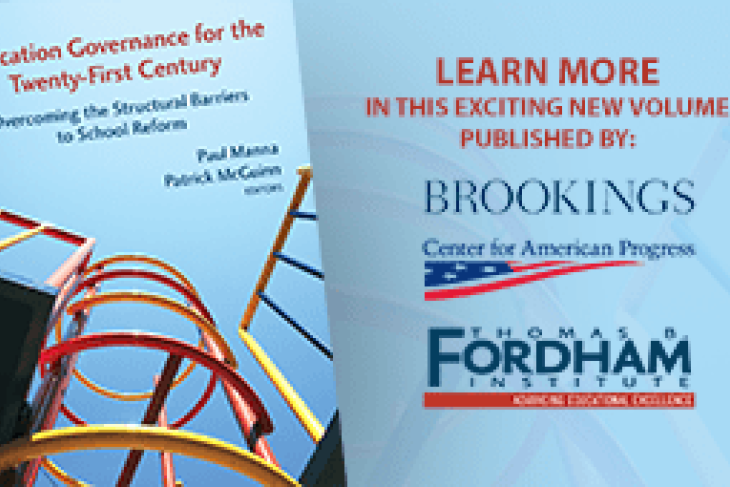The greatest failing of education reformers in the U.S. this past quarter century has been their neglect of governance and structure—widely regarded either as politically impractical to touch or as too boring to get anyone interested. Yet the very structures and governance of our K–12 system often prevent other badly needed changes from taking place, enduring, or succeeding.
Recent months, however, have seen some cracks in the governance glacier with a spate of new books, articles, and conferences on the topic—meaning this set of reform challenges is no longer taboo to discuss or to tackle.
In an earnest effort to advance this crucial conversation, the Thomas B. Fordham Institute—in partnership with the Center for American Progress and the Brookings Institution Press—is pleased to present Education Governance for the Twenty-First Century: Overcoming the Structural Barriers to School Reform, edited by Paul Manna of the College of William and Mary and Patrick McGuinn of Drew University.
This important volume should be on the desk or bedside of every serious education reformer and policymaker in the land.
Featuring chapters by education scholars, analysts, and battle-scarred practitioners, it closely examines our present structures, identifies their failings, and offers some penetrating ideas for how governance might be done differently.
All serious reform victories begin with battles over ideas. In that spirit, we urge you to spend some quality time with this book. Overhauling our dysfunctional education-governance arrangements is a key priority for us at Fordham—and will inevitably loom among the hottest and most consequential issues for all serious reformers in the years to come.




